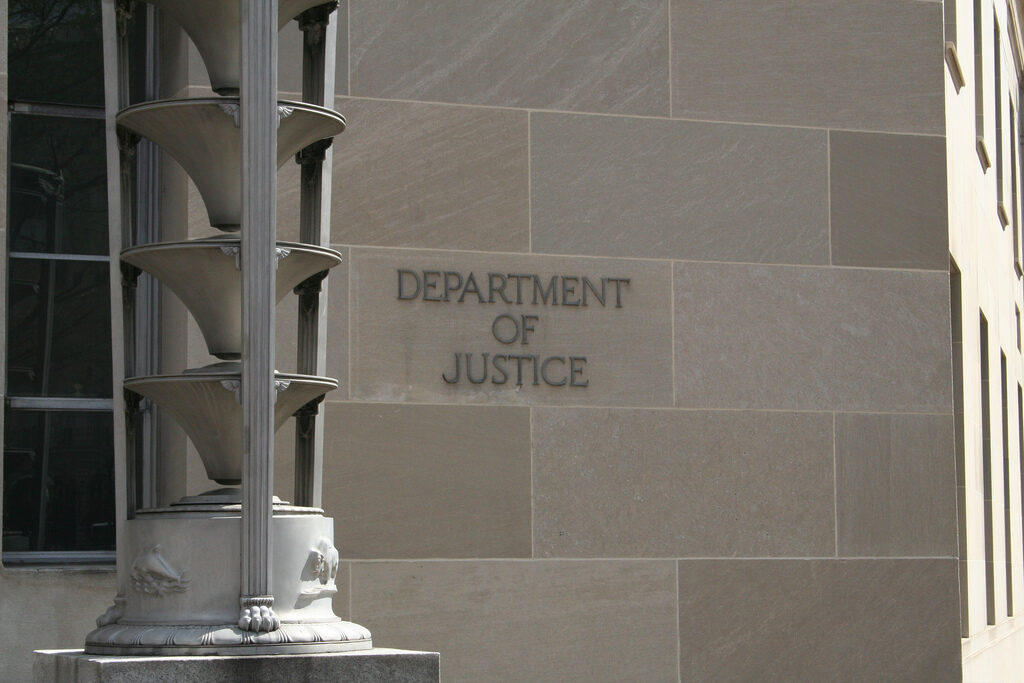Germany’s Federal High Court of Justice (BGH) yesterday affirmed the acquittal of Abdelghani Mzoudi on charges of aiding and abetting the 9/11 hijackers.
Meanwhile, the retrial of fellow student Mounir el Motassadeq on like charges is nearing its end, and defense attorneys see grounds for optimism.
The system worked. Details below:
The facts:
Karlsruhe. After 22 months before the courts, the Hamburg student Abdelghani Mzoudi, is finally a Free man. The Federal High Court of Justice (BGH) on Thursday affirmed the acquittal handed down by the Hamburg Superior Court. The Federal Public Prosecutor’s office had charged the 32-year-old with being an accomplice of to the murders of 11 September 2001, and now has no further recourse following this defeat.
[snip]
Mzoudi was acquitted in Hamburg in February 2004 for lack of evidence after 32 days of trial. The court found that, although the accused may have known of the preparations for the attack, the opposite was possible as well. In the course of the trial it was revealed that money was paid from Mzoudi’s bank account to the alleged members of the of death Mohammed Atta’s group, and that Mzoudi had procured a place to stay (i.e., for alleged conspirators). The Federal Prosecutor’s Office called these “supporting actions”, whereas the judge termed these “everyday acts”. Nor did the court find Mzoudi’s three-month stay in an Afgan El Kaida camp sufficient to justify a guilty verdict.
The BGH found that the Superior Court had recognized the incriminating circumstances, but had also set these off against the exonerating circumstances. The BGH ruled that the consideration of the evidence conformed with all requirements of the law.
(Link; translation my own)
For readers coming from an Anglo-American judicial tradition, I should here explain two facts about German jurisprudence:
- Verdicts are handed down by judges; there are no juries in Germany.
- Both sides can appeal a verdict, i.e. prosecutors can (and do) appeal acquittals.
In this case, the system worked. The facts were weighed and a decision arrived at in light of the presumption of innocence – with no emotional manipulation attempts on the part of the prosecutors or defenders. (Imagine, say, if the Michael Jackson trial were conducted on similar principles.) One one very important level, whether Mzoudi was or was not involved is secondary. The legal system in this case did what a legal system is supposed to do.
The system grinds on in another terror case as well, and here too an acquittal is looking likely. WaPo reports:
U.S. Intelligence May Aid Terrorism Suspect
BERLIN, May 24 — Attorneys for a terrorism suspect in Germany voiced skepticism last year when U.S. officials agreed to submit as evidence intelligence reports gleaned from the interrogations of captured al Qaeda leaders. Citing prisoner abuse in U.S. jails in Iraq and elsewhere, the lawyers argued that the reports would be unreliable as evidence in the trial of their client, accused of being a member of the Hamburg cell that led the attacks of Sept. 11, 2001.
As the trial nears an end, however, attorneys for defendant Mounir Motassadeq have changed their views. They find evidence for acquittal in the reports, notably an account from one of the interrogated men that only he and three of the 19 hijackers who died on Sept. 11 were core members of the Hamburg cell.
On Tuesday, the German court overseeing the retrial of Motassadeq on 3,066 counts of accessory to murder and other charges made public the second — and final — batch of U.S. intelligence reports pertaining to the Hamburg cell.
The documents include summaries of statements made to interrogators by Ramzi Binalshibh, an al Qaeda figure arrested in Pakistan in 2002 who investigators believe was a central player in the Hamburg cell. The documents barely mention Motassadeq.
Motassadeq was convicted in 2003 and sentenced to 15 years in prison for aiding the hijackers, as well as for membership in a terrorist organization. But the verdict was overturned after an appellate court ruled that the evidence was weak.
That last is rather euphemistic. The Frankfurter Allgemeine explains why.
The US Justice Department responded to an official request for assistance from Hamburg, but only in the form of a few faxes that were short on information. Particularly from the interrogations of the – alleged – terrorist suspects imprisoned in the USA, especially Ramzi Binalshibh und Chalid Scheich Mohammed, the courts had hoped for some information on the role of Motassadeq. (Link, 23 Nov. 04; translation my own.)
Now of course we know why the Justice Dept. didn’t come across: the interrogation transcripts are more exculpatory than otherwise.
Without doubt, the current turn of events will do little to satisfy prosecutors – or help survivors achieve closure. As WaPo reports:
Dominic J. Puopolo Jr., a Miami Beach computer consultant whose mother was a passenger on one of the hijacked planes on Sept. 11, said in a telephone interview that he was convinced that Binalshibh and other captured al Qaeda leaders were concealing the truth to protect Motassadeq and others.
“It’s terrorists covering for other terrorists,” said Puopolo, who has followed Motassadeq’s retrial closely. “It’s the whole modus operandi for how al Qaeda works, which is to deceive. Ever since they’ve been caught, they’ve continued to mislead and misinform.”
We can all understand the bitterness and disappointment implicit in Mr. Puopolo’s remarks. However, Hamburg University Professor Bernd-Ruediger Sonnen, puts the legal issue thusly:
“I know there is disappointment at the federal prosecutor’s office,” said . “This is material that strengthens the defense and weakens the federal prosecution. And when in doubt, the court must decide for the defendant.”
And that, I submit, is how it should be.
